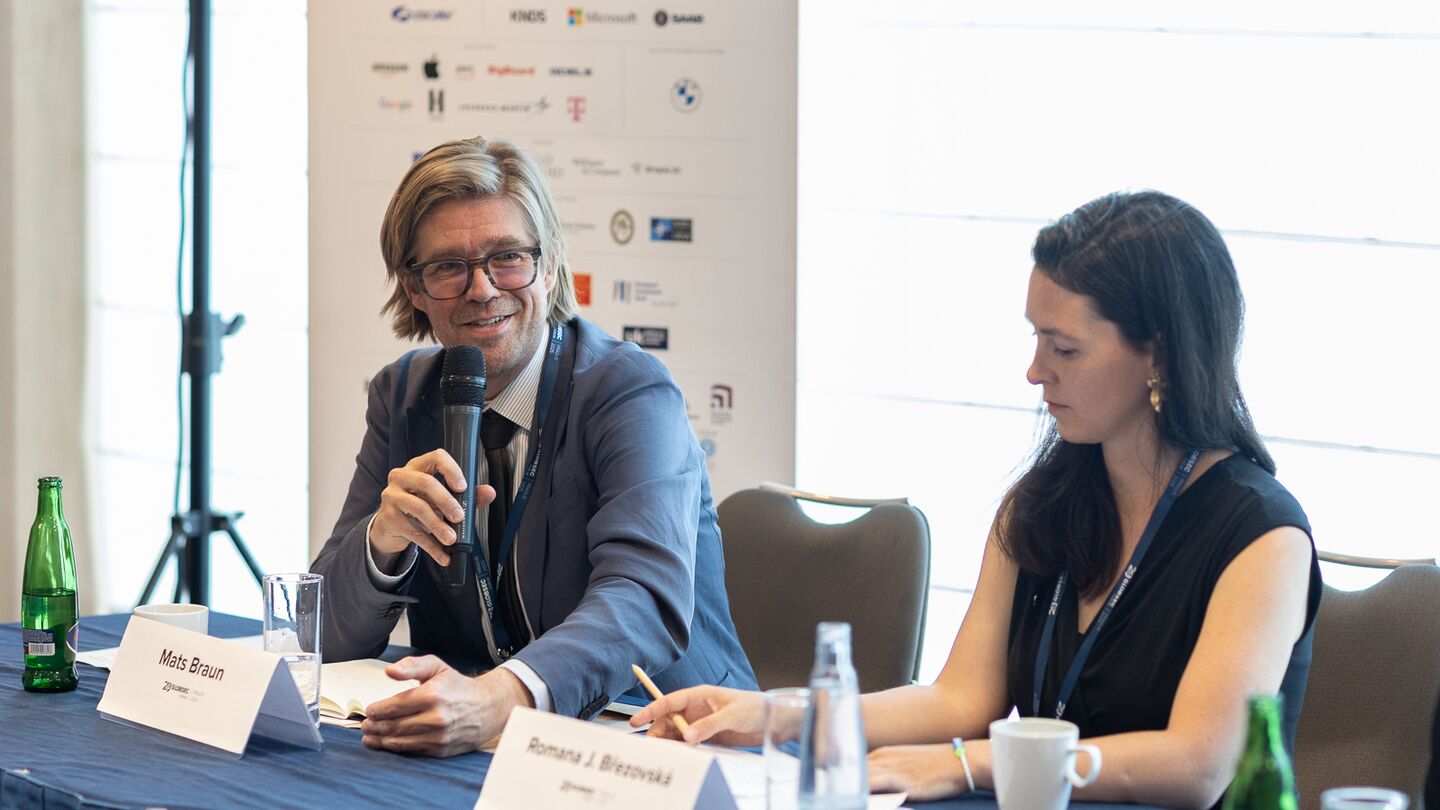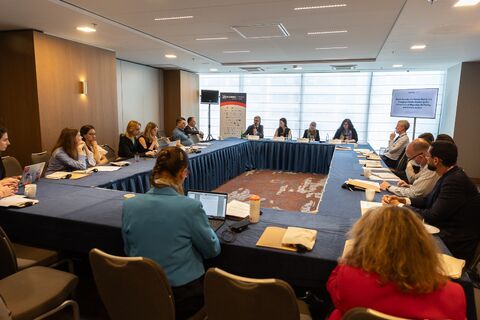Roundtable discussion at GLOBSEC 2025: Global Security and Human Rights in a Changing Climate

The Institute of International Relations Prague took part in GLOBSEC 2025, an international security and policy forum held at the Hilton Hotel in Prague. This year’s theme was Commanding (in) Chaos: Time for Europe to Step Up.
On 12 June 2025, the side event titled Global Security and Human Rights in a Changing Climate: Exploring the Intersections of Migration, EU Policy, and Climate Justice took place as part of the GLOBSEC 2025 Forum in Prague. Moderated by Head of Climate Diplomacy in Association for International Affairs Romana Jungwirth Březovská, the panel featured three IIR experts: Director Mats Braun, senior researcher and Head of the Department of Public International Law at the Faculty of Law of Charles University Veronika Bílková, and senior researcher and Head of the Centre for International Law Federica Cristani.
The session aimed to explore the complex interplay between climate change, migration, human rights, and global security, particularly through the lens of EU policy and international law. The urgency of the topic was underscored by growing environmental pressures and their impact on global political stability.
The discussion explored the EU’s internal and external approaches to climate security, the legal challenges of environmental migration, and the growing relevance of climate litigation. Mats Braun emphasized the EU’s global leadership in climate policy and reflected on the tensions between democratic and authoritarian systems in delivering climate action. He also addressed the politicization of science and possible avenues for EU-China cooperation on green technologies. Veronika Bílková highlighted the complexity and legal ambiguity of environmental migration, noting the lack of binding frameworks and stressing that migration should not be viewed solely as a threat. Federica Cristani introduced climate justice as a key concept and presented litigation as an emerging tool for holding states accountable, citing both international cases and developments in Czechia and Poland. During the session, insights from the Horizon Europe HRJust project (States’ Practice of Human Rights Justification), to which both Veronika Bílková and Federica Cristani contribute, where shared and discussed.
Audience members showed interest in the legal implications of recent political critiques of the European Court of Human Rights and in the conditions for effective climate litigation. The event, funded by Human Rights Justifications research project, successfully fostered a dynamic exchange of expert perspectives and contributed to the broader debate on climate-related security and justice.
